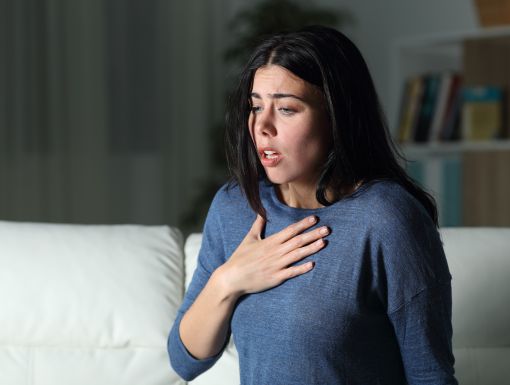
Are My Symptoms from Stress or COVID-19?
Many things can cause you to feel stressed – being late to a meeting, driving in traffic on the way to drop your kid off at school, burning dinner in the oven or, of course, living through a worldwide pandemic. Nowadays, everyone is on high alert when they experience the slightest of symptoms because of the rampant coronavirus outbreak. But, could something as simple as stress be the culprit for your symptoms?
Stress disrupts our immune systems and can cause you to experience a range of symptoms including headaches, stomach issues and fatigue. Excess stress over time can cause you to get sick more easily.
Common signs of stress include:
- Shortness of breath
- Muscle tension
- Nausea
- Increased heart rate
- Chest pain
- Frequent colds or infections
- Headache
- Low energy
Do these symptoms sound familiar? Many of these symptoms are also common with COVID-19, which can lead some to believe they may have the COVID-19 infection. If your symptoms are suggestive of COVID-19, it is important to talk to your doctor to determine if testing is needed. If your test is negative and you are still feeling unwell, then it could be your heightened stress levels during this time.
Fear and anxiety are all around us because so much is still unknown about COVID-19. Coping with stress in the right way is a key component to making sure your mind and body stay healthy.
Here are some good ways to cope with stress and manage the symptoms that come with it:
- Focus on your mental health – talk to those close to you for advice. If you need professional help, seek counseling or therapy. There are even telehealth options available!
- Take care of your body – getting up and moving is shown to improve stress. Some great options are exercising, stretching or meditating. Also, make sure you eat a balanced diet to ensure your body is getting the necessary nutrition.
- Be prepared – the best way to avoid feeling stressed is by being informed and prepared for anything that might lie ahead. Visit the CDC website for the latest research to use as you create your plan to prevent the disease.
- Take a break from the screen – news stories (both sensationalized and not) are flooding our minds these days. Repeatedly hearing unsettling news can take a toll on you. Give yourself thirty minutes to an hour a day to detox from social media and the television.
Want more tips for managing anxiety during COVID-19? This list has even more ways to deal with stress, including having a morning ritual and creating a to-do list.
This is a unique time for everyone but putting your mental and physical health first is essential. By managing the added stress, you can reduce many of the symptoms that come with increased anxiety, which could be confused for a serious infection like COVID-19.
The information in this blog post is accurate at the time of publication. However, as the situation surrounding COVID-19 continues to change, it's possible that information has changed since being published. While Ochsner Health is trying to keep our blog posts as up-to-date as possible, we also encourage readers to stay informed on news and recommendations by using the CDC website.



